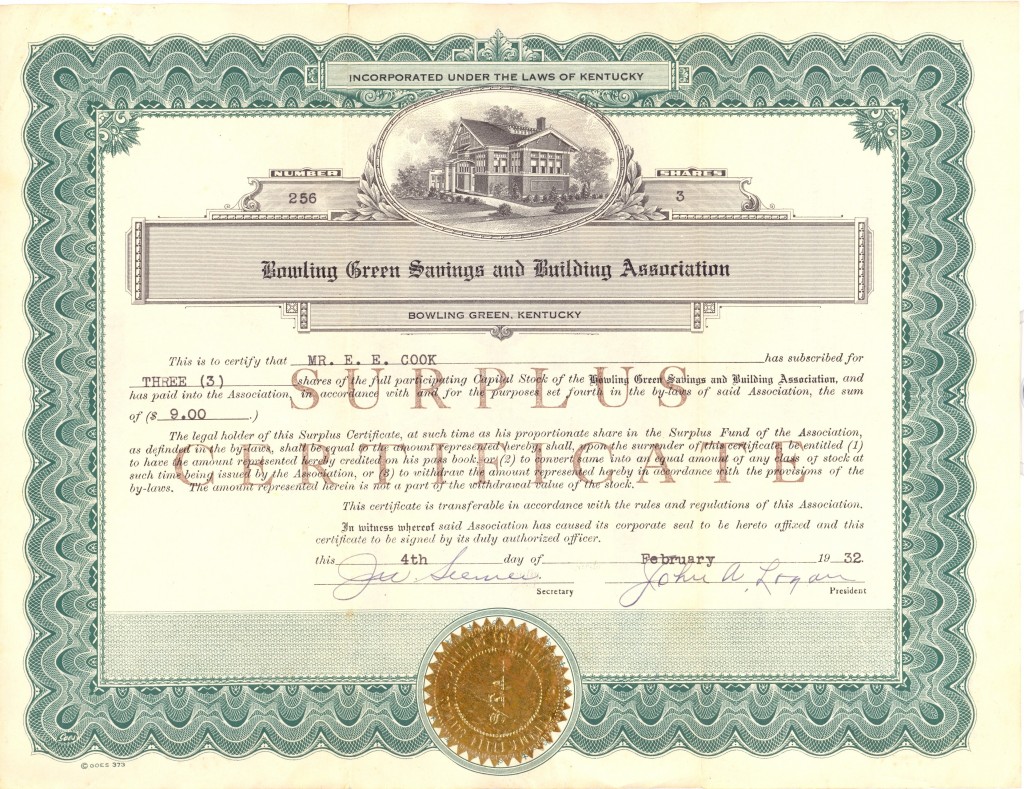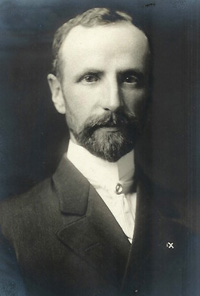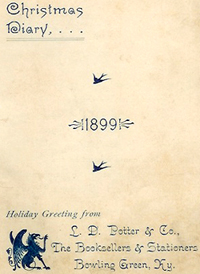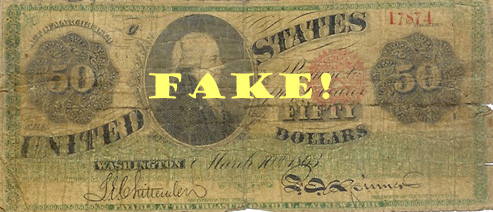Stock certificates often provide interesting information about a generation’s cultural and financial history. This certifcate for the Bowling Green Savings and Building Association was recently added to the Manuscripts collections in WKU’s Special Collection Library. The 1932 certificate documents the establishment of an independent savings and loan assocation which was funded solely through local stock purchases. The proceeds were used to make loans for local home and land purchases. The Association sold $750,000 worth of $3 shares within six months. The business, ran by John A. Logan, operated until he began to experience poor health in the mid-1940s. Logan owned extensive land holdings in the Smiths Grove area. He also worked as an attorney for the Kentucky Rock Asphalt Company in Edmonson County and served as president of Smiths Grove Deposit Bank.
Although Logan chaired three of Edmonson County’s Liberty Loan drives during World War I, he later opposed the patriotic pressure placed on the American public, particularly poorer rural citizens, to purchase government bonds over simply saving their money in local banks. In 1933 he wrote: “The using of the savings of rural country people in the purchase of government bonds instead of depositing their money with their banks and building and loan associations has done more to deplete the cash reserves of banks than any other one thing. The withdrawal of money from banks to purchase government bonds forces the banks to press the people and to collect their outstanding notes in order to keep up their cash reserves required by law.”
The Bowling Green Savings and Building Association was founded to invest local funds in local financing. This was a real boon to people who experienced difficulty borrowing from faltering, or heavily regulated, banks at the time. This certificate indicates that Elbert Eugene Cook purchased three shares of capital stock in the Association for three dollars per share. Click here to see a finding aid for this small collection.










